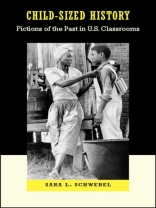For more than three decades, the same children’s historical novels have been taught across the United States. Honored for their literary quality and appreciated for their alignment with social studies curricula, the books have flourished as schools moved from whole-language to phonics and from student-centered learning to standardized testing.
Books like Johnny Tremain, The Witch of Blackbird Pond, Island of the Blue Dolphins, and Roll of Thunder, Hear My Cry stimulate children’s imagination, transporting them into the American past and projecting them into an American future. As works of historical interpretation, however, many are startlingly out of step with current historiography and social sensibilities, especially with regard to race. Unlike textbooks, which are replaced on regular cycles and subjected to public tugs-of-war between the left and right, historical novels have simply–and quietly–endured. Taken individually, many present troubling interpretations of the American past. But embraced collectively, this classroom canon provides a rare pedagogical opportunity: it captures a range of interpretive voices across time and place, a kind of ‘people’s history’ far removed from today’s state-sanctioned textbooks.
Teachers who employ historical novels in the classroom can help students recognize and interpret historical narrative as the product of research, analytical perspective, and the politics of the time. In doing so, they sensitize students to the ways in which the past is put to moral and ideological uses in the present.
Featuring separate chapters on American Indians, war, and slavery, Child-Sized History tracks the changes in how young readers are taught to conceptualize history and the American nation.
Mengenai Pengarang
Sara L. Schwebel is Assistant Professor of English Language and Literature at the University of South Carolina. She received her Ph.D. in the History of American Civilization from Harvard University and has taught middle-school English and history in Connecticut and Virginia. She is the co-author of The Student Teacher’s Handbook, 4th Edition.












